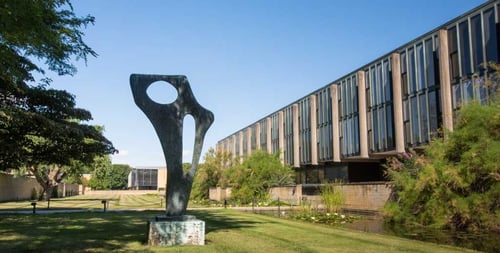Alumni Features: Sir John Ernest Walker
Professor Sir John Ernest Walker
Sir John Ernest Walker was born on January 7, 1941, and is a eminent British chemist whose groundbreaking work in the field of enzymology earned him the Nobel Prize in Chemistry in 1997. His contributions have had a huge impact on the scientific community’s understanding of the molecular mechanisms driving cellular energy production.
Walker's journey in science began at the University of Oxford, where he was admitted in 1960 to study chemistry. At Oxford, Walker was introduced to molecular biology and enzymology, which would become the focus of his extraordinary career. After completing his undergraduate studies, he pursued further education and research in biochemistry, which gave him a solid foundation for his future scientific efforts.
In his early years Walker focused on the role of enzymes in cellular energy conversion. His research concentrated on a critical component of the process by which cells produce energy in the form of ATP (adenosine triphosphate).
ATP synthase plays a crucial role in the synthesis of ATP from ADP (adenosine diphosphate) and inorganic phosphate, a process that occurs in the mitochondria of cells during cellular respiration… I guess you have to be a chemist!
Walker’s most significant contribution came through his work on the crystal structure of ATP synthase. In the 1990s, he and his team were able to explain the three-dimensional structure of this enzyme, a monumental achievement that provided unprecedented insights into its function and mechanics. This work was pivotal in explaining how ATP is generated in biological systems, a process essential for life.
For this discovery, Walker was awarded the Nobel Prize in Chemistry in 1997, sharing the honour with Paul D. Boyer and the Danish scientist Jens C. Skou.
Beyond his Nobel work, Walker has been a regular contributor to the field of biochemistry. He has written many scientific papers and has been mentor to many young scientists.
Walker's academic distinctions include being elected a Fellow of the Royal Society (FRS) and receiving several other prestigious awards and honours in recognition of his contribution to science. His leadership roles and participation in numerous international committees have helped shape research agendas and foster scientific collaborations worldwide.
Throughout his career, Sir John has not only advanced the understanding of biochemical mechanisms but also demonstrated the critical role of elementary science in addressing complex biological questions. His work continues to influence a range of disciplines, from molecular biology to medicine.
Sir John's legacy is that of a scientist who has influenced the molecular life sciences, providing tools and knowledge that have advanced the study of cellular energy production and its application to health and disease. His contributions remain integral to the ongoing exploration of biochemical and physiological processes at the molecular level.





